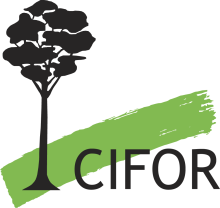Resource information
Since the collapse of Soeharto’s New Order regime in May 1998, Indonesia’s national, provincial, and district governments have engaged in an intense struggle over how authority and the power embedded in it, should be shared. How this ongoing struggle over authority in the forestry sector will ultimately play out is of considerable significance due to the important role that Indonesia’s forests play in supporting rural livelihoods, generating economic revenues, and providing environmental services. This book examines the process of forestry sector decentralization that has occurred in post-Soeharto Indonesia, and assesses the implications of more recent efforts by the national government to recentralize administrative authority over forest resources. It aims to describe the dynamics of decentralization in the forestry sector, to document major changes that occurred as district governments assumed a greater role in administering forest resources, and to assess what the ongoing struggle among Indonesia’s national, provincial, and district governments is likely to mean for forest sustainability, economic development at multiple levels, and rural livelihoods. Drawing from primary research conducted by numerous scientists both at CIFOR and its many Indonesian and international partner institutions since 2000, this book sketches the sectoral context for current governmental reforms by tracing forestry development and the changing structure of forest administration from Indonesia’s independence in 1945 to the fall of Soeharto’s New Order regime in 1998. The authors further examine the origins and scope of Indonesia’s decentralization laws in order to describe the legal-regulatory framework within which decentralization has been implemented both at the macro-level and specifically within the forestry sector. This book also analyses the decentralization of Indonesia’s fiscal system and describes the effects of the country’s new fiscal balancing arrangements on revenue flows from the forestry sector, and describes the dynamics of district-level timber regimes following the adoption of Indonesia’s decentralization laws. Finally, this book also examines the real and anticipated effects of decentralization on land tenure and livelihood security for communities living in and around forested areas, and summarizes major findings and options for possible interventions to strengthen the forestry reform efforts currently underway in Indonesia.



